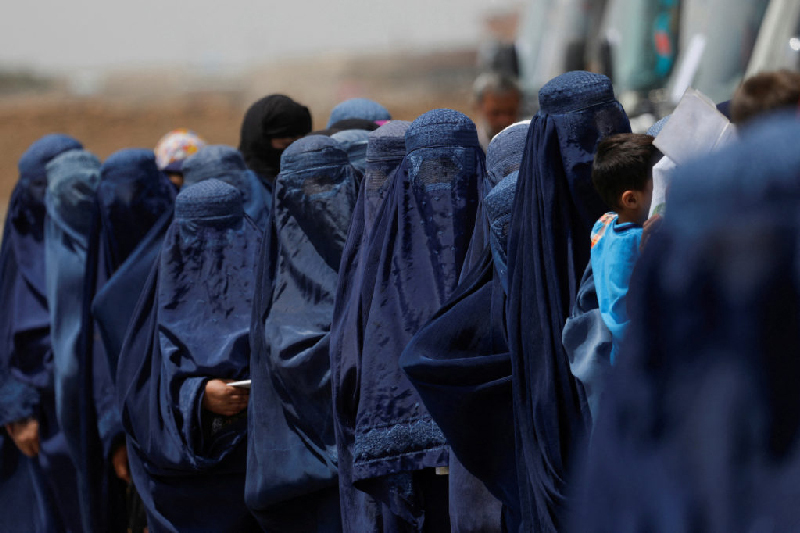
lack of jobs in iran a major challenge for afghan migrant women
Afghan migrant women are suffering in the Islamic Republic of Iran because of the economic crisis. Migrant women in Iran are mostly engaged in home-based occupations such as sewing and gardening, which is not enough to survive.
According to a report by Khaama Press, Afghan migrants are living in Iran under challenging economic conditions. About one-third of them are women, who are facing problems. The employment opportunities are limited for women in Iran.
Asifa Stanekzai, a women’s rights activist in Iran, told Khaama Press that limitations in “employment generation” and “cultural” issues caused difficulties for migrant women.
Plight of Afghan migrant women in Iran
Iranian newspaper “Ham-Maihan” said in a report titled “Migrant Women: Invisible Workers” that Afghan women migrants in Iran were employed in underground workshops for lower wages. Educational limitations in Afghanistan affected their career. They cannot get a good job because they did not get a good education.
Afghan migrant women work in the production sector in Iran. They do not make enough money for their survival.
An Afghan migrant woman spent twenty years working in various professions, including carpet weaving, nursing, sewing, and house painting. However, she lost her job because she did not have legal residency.
Keep Reading
Afghan migrants in Iran
Iran has hosted millions of Afghan migrants for years. However, Iran imposed various restrictions on Afghan migrant families. The Iranian authorities forced Afghan women into low-paying and labor-intensive jobs for many years.
Tehran, Sistan and Baluchestan, Razavi Khorasan, Qom, Kerman, Yazd, Fars, and Alborz provinces in Iran have the highest number of Afghan migrants. In Iran, Afghan migrants are estimated to be more than 4 million, including documented and undocumented refugees.
Since the Taliban takeover of Afghanistan in 2021, tens of thousands of Afghan migrants have come to Iran.
Last month, around 450,000 Afghan migrants returned to Taliban rule in Afghanistan because the Iranian authorities started the crackdown to expel illegal migrants.
Javad Khani, the official in charge of managing illegal migrants at the National Organization for Migration in Iran, confirmed the repatriation of irregular migrants.









